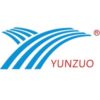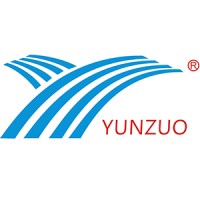In the dynamic landscape of technology and connectivity, USB C hubs have emerged as versatile and indispensable devices. These hubs offer a streamlined solution for connecting various peripherals and devices to laptops and other compatible gadgets. For entrepreneurs and wholesale buyers, the USB C hub market presents a wealth of opportunities. This comprehensive guide will walk you through the process of exploring and capitalizing on the USB C hub market from a wholesale perspective.
The Growing Relevance of USB C Hubs
Before diving into the wholesale aspects, let’s establish why USB C hubs are becoming increasingly relevant in the world of tech and connectivity.
1. Versatile Connectivity: USB C hubs are designed to provide an array of connectivity options, including USB-A, HDMI, Ethernet, SD card readers, and more. This versatility is essential for modern users with diverse devices and needs.
2. Streamlined Workflows: These hubs simplify your workflow by allowing you to connect multiple devices, such as laptops, tablets, and smartphones, to various peripherals like monitors, keyboards, external drives, and more, with ease. No more fumbling with different cables and adapters.
3. Enhanced Productivity: USB C hubs can significantly enhance productivity. They enable professionals to work more efficiently, supporting multitasking and offering seamless connectivity for remote work or in-office tasks.
4. Multimedia Excellence: For enthusiasts and professionals working with multimedia content, USB C hubs provide an efficient and smooth experience. They facilitate high-speed data transfer and support high-resolution displays, making them ideal for video editing, graphic design, and content creation.
Sourcing from Wholesale: Why It Matters
Sourcing USB C hubs from a wholesale perspective can bring numerous benefits to your business. Here’s why it matters:
1. Cost Efficiency: Wholesale purchases often translate to significant cost savings. When you buy in bulk, the cost per unit is reduced, allowing you to maintain healthy profit margins.
2. Quality Assurance: Reputable wholesale suppliers prioritize quality control, ensuring the products meet or exceed industry standards. This commitment to quality is essential, especially when dealing with electronics.
3. Product Variety: Wholesale factories typically offer a wide variety of USB C hubs. You can choose from standard models or collaborate with manufacturers to develop custom solutions tailored to your market’s demands.
4. Consistency: Sourcing from a single wholesale factory ensures product consistency and reliability. This consistency is crucial for building a strong brand reputation based on product quality.
5. Technological Advancements: Wholesale factories are often at the forefront of technological advancements. They invest in research and development to provide cutting-edge products that align with market trends.
Step 1: Market Research
To successfully navigate the USB C hub market from a wholesale perspective, you need to begin with comprehensive market research. This step is critical in understanding your target audience, customer preferences, and the latest industry trends.
Identify Your Target Market: Determine whether your primary market is B2B (business-to-business) or B2C (business-to-consumer). This classification will influence your product specifications and marketing strategies.
Customer Preferences: Study what features and connectivity options your potential customers are seeking in USB C hubs. Are they more interested in versatility, high-speed data transfer, or cost-efficiency?
Industry Trends: Stay updated on the latest industry trends, including technological advancements, emerging competitors, and shifts in consumer behavior. Keeping your finger on the pulse of the industry is crucial for making informed decisions.
Step 2: Legal and Regulatory Requirements
Navigating the legal and regulatory landscape is a critical aspect of the wholesale business. You must ensure compliance with import/export regulations, safety standards, and the necessary licenses and permits for handling electronic devices.
Import/Export Regulations: Different countries have varying import/export regulations. Ensure you are aware of the specific requirements in your location and the location of your wholesale factory.
Compliance Standards: Electronics are subject to specific compliance standards, including safety, electromagnetic compatibility (EMC), and environmental regulations. Familiarize yourself with these standards and ensure your products meet them.
Licenses and Permits: Verify the licenses and permits needed to engage in the import and distribution of electronic devices in your region. Compliance with legal requirements is essential to prevent potential legal issues in the future.
Step 3: Sourcing Reliable Suppliers
Sourcing reliable suppliers is the cornerstone of a successful wholesale business. Research, vetting, and effective communication with manufacturers are essential.
Research Potential Suppliers: Start by researching potential suppliers. Utilize online directories, attend trade shows, and engage in industry forums to identify suitable wholesale factories.
Vet Credentials: Vet the credentials of your potential partners. Look for a proven track record of quality, reliability, and ethical business practices. Check for references and reviews from other clients.
Effective Communication: Effective communication with your suppliers is paramount. Ensure that language barriers, time zones, or cultural differences do not hinder your ability to convey expectations clearly. Establish a reliable means of communication.
Step 4: Negotiating Deals
Negotiating deals is more than just discussing prices. Consider other factors that can make or break your agreement with a wholesale factory.
Minimum Order Quantities (MOQ): Be aware of the minimum order quantities (MOQ) required by the factory.




